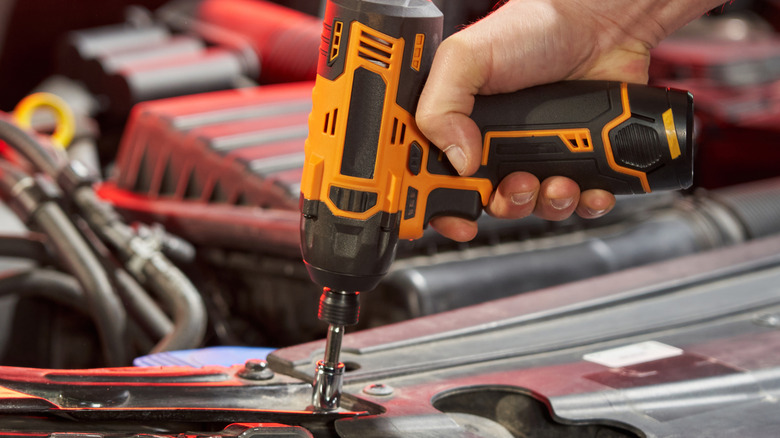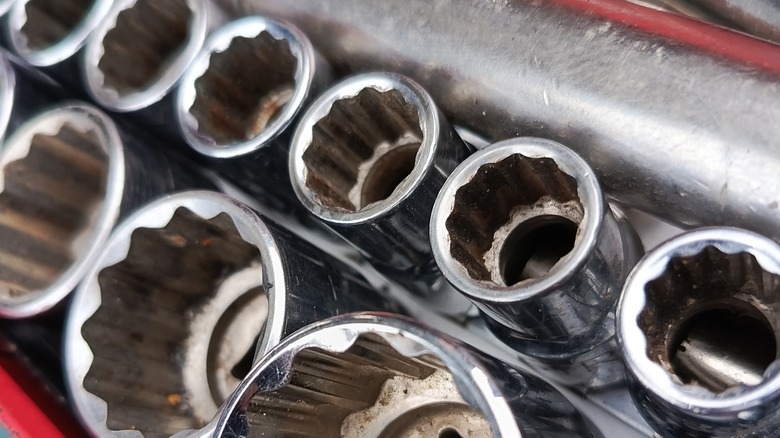Why You Shouldn't Be Using Chrome Sockets With An Impact Driver
When looking at the most basic of power tools, it becomes clear just how easy they are to pick up and use. For example, with an impact driver, the bare bones of what you need to know are what the power source is, if the bit or socket is attached correctly, and in which direction the bit will spin when the trigger is pressed. At the same time, there are some more minor nuances that less experienced users would want to know about. One of those is knowing the material the sockets themselves are made from, and how using the wrong type in any model from the major impact driver brands could prove disastrous.
If you're a longtime power tool and impact driver user, odds are you know that using chrome sockets isn't a good idea. Sure, theoretically, such sockets will get the job done, but for the long haul, you don't want to rely on them. The chrome-vanadium steel is not intended for hard, rough use with an impact driver. In short order, the sockets will wear out, both on the end where they connect to the impact driver and the end where they latch onto bolts. This will, in turn, strip the bolts and make them harder to remove, and create chrome flakes that can cut your hands and get into your eyes. Worse yet, chrome sockets can suddenly shatter under pressure, creating an even bigger hazard.
Evidently, chrome sockets aren't a good fit for impact wrenches. With that in mind, what sockets should be used instead?
Better socket options for your impact driver than chrome
Not only are chrome sockets a bad choice for an impact wrench because of their own longevity, but they can also adversely affect the tool they're connected to. Chrome sockets that aren't intended to connect to impact drivers will inevitably damage the anvil used to connect them to the tool. Over time, it can round out, fail to hold onto sockets, and put more pressure on the driver's internal components. Thus, costly repairs or a full replacement will be necessary. To avoid this entirely, all you have to do is ensure you're buying actual impact-compatible sockets for your tool.
So, what makes impact sockets so special and better for impact drivers than standard chrome sockets? A lot of it comes down to their material, chrome-molybdenum steel, which is better suited for the high-demand, high-torque nature of impact driver use. It's more ductile and less prone to cracking, stripping, and eventual breakage compared to chrome vanadium. There's also the matter of compatibility, as impact sockets are designed not to damage the anvil or the impact driver. They often feature a small hole on the side as well, intended for a retaining pin. This reduces the likelihood of the socket flying off during use. Not to mention, there's the benefit of being able to use impact sockets as regular sockets, too.
To the untrained eye, when using an impact driver, any socket will do. However, that's not quite the case, with chrome sockets being inferior to designated impact sockets in more ways than one.

